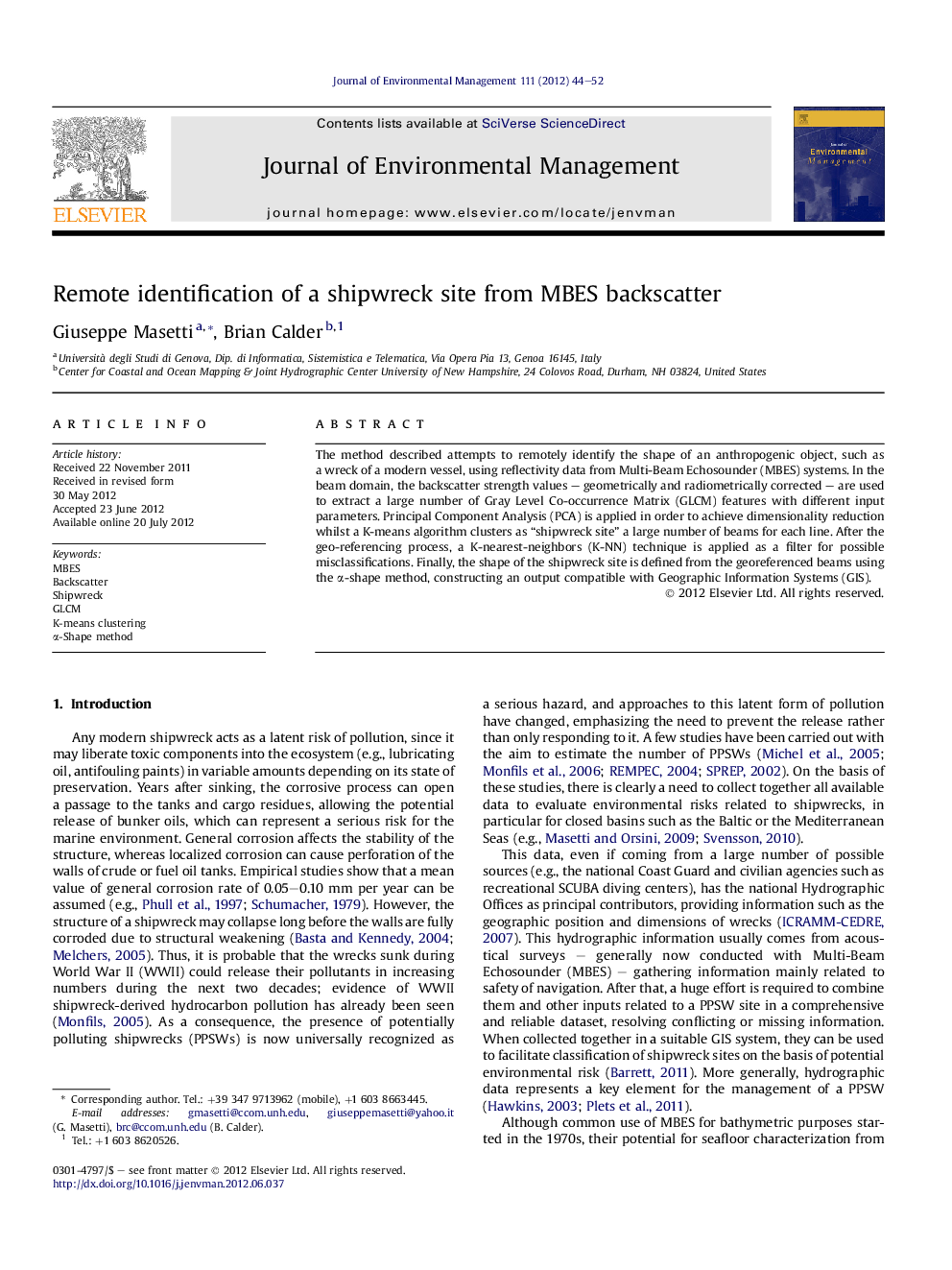| کد مقاله | کد نشریه | سال انتشار | مقاله انگلیسی | نسخه تمام متن |
|---|---|---|---|---|
| 1056539 | 1485301 | 2012 | 9 صفحه PDF | دانلود رایگان |

The method described attempts to remotely identify the shape of an anthropogenic object, such as a wreck of a modern vessel, using reflectivity data from Multi-Beam Echosounder (MBES) systems. In the beam domain, the backscatter strength values – geometrically and radiometrically corrected – are used to extract a large number of Gray Level Co-occurrence Matrix (GLCM) features with different input parameters. Principal Component Analysis (PCA) is applied in order to achieve dimensionality reduction whilst a K-means algorithm clusters as “shipwreck site” a large number of beams for each line. After the geo-referencing process, a K-nearest-neighbors (K-NN) technique is applied as a filter for possible misclassifications. Finally, the shape of the shipwreck site is defined from the georeferenced beams using the α-shape method, constructing an output compatible with Geographic Information Systems (GIS).
► The method remotely identifies the shape of a shipwreck site, allowing monitoring and change detection.
► The MBES backscatter is used to extract specific GLCM indicators based on PCA.
► The shape is defined from labeled beams using the alpha-shape method.
► The output represents a spatial object compatible with GIS methods.
Journal: Journal of Environmental Management - Volume 111, 30 November 2012, Pages 44–52